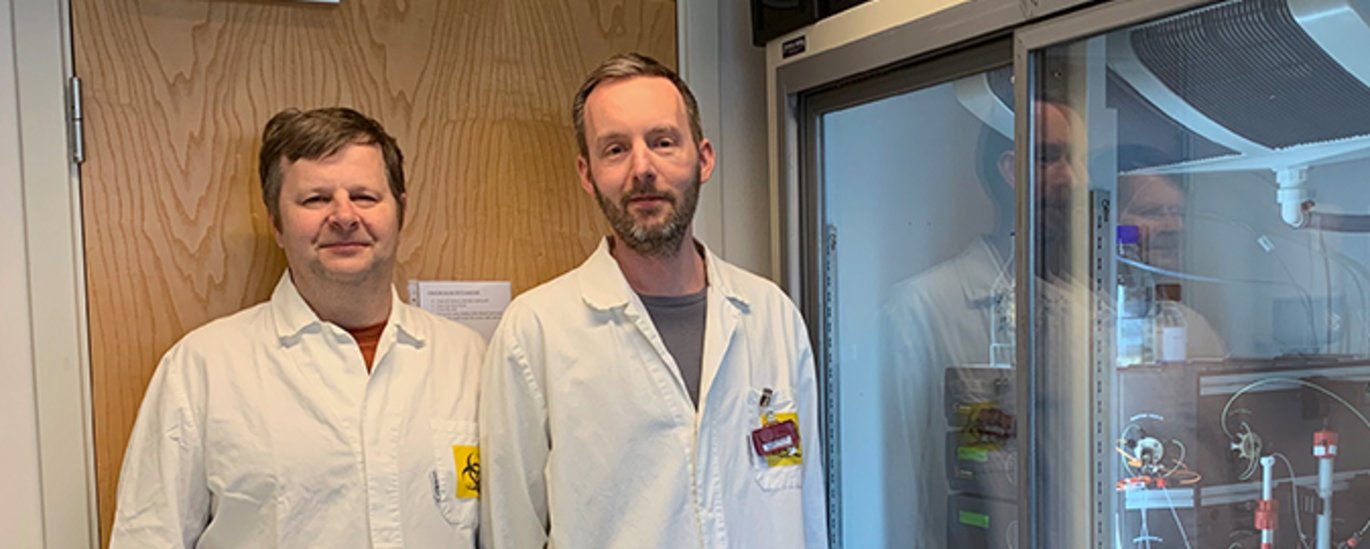When the immune system is multitasking
An international research team has shown how a protein called IFN-? can both fight a viral infection directly, but also boost the formation of new antibodies against the virus. The discovery gives new important knowledge about how different parts of the immune system communicate and will make it easier to make more effective vaccines, especially against respiratory infections such as influenza

Our immune system can be divided into an innate and an adaptive immune system. The adaptive immune system can adapt and learn to recognize specific microorganisms using antibodies, and it has memory in the sense that it can quickly recognize microorganisms it has seen before. In turn, it takes time for the adaptive immune system to learn to recognize new microorganisms, and if the microorganisms change, it can no longer recognize them.
In contrast, the innate immune system does not recognize specific microorganisms but rather molecular patterns that characterize whole groups of microorganisms and are essential for their life cycle. The innate immune system cannot adapt in the same way as the adaptive immune system and learn to recognize new molecular patterns, but on the other hand, it reacts very quickly as soon as it recognizes one of the known patterns. This is, for example, seen when a cell is infected by a virus and recognizes the viral genetic material. The cell will then begin to release interferons which act as a warning signal, rapidly affecting the surrounding cells and activating their defense mechanisms. Interferons are often pleiotropic, i.e., they can affect more than one kind of cell and often in more than one way, and they are essential for proper immune control.
A particular type of interferon, known as interferon ? (IFN-?), plays a crucial role in the immune system in most of our epithelial tissue. The epithelial tissue covers the body's inner and outer surfaces and is therefore especially exposed to microorganisms compared to the rest of the body. The cells of the epithelial tissue therefore have a particularly strong innate immune system, and as part of this, IFN-? helps protect the cells from viral infections.
IFN-? boosts the adaptive immune system
Until now, IFN-? has been thought to play almost exclusively a role in the innate immune system, but a research group at the Department of Molecular Biology and Genetics at Aarhus University in Denmark has recently, in collaboration with several research groups in Germany and Sweden, shown that IFN-? actually also helps boosting the adaptive immune system.
The researchers used a live but weakened virus to vaccinate mice against influenza virus and observed that the mice receiving IFN-? produced many more IgG1 antibodies than those mice that did not receive IFN-?. However, this effect depended on how the researchers vaccinated the mice. If the mice were given the vaccine through the nose, a clear effect was seen, but if the mice received the vaccine in the abdominal cavity or under the skin, no effect was seen. When the researchers examined the phenomenon more closely, it turned out that the effect was seen when IFN-? affected a particular kind of cells in the epithelial tissue of the nose and caused them to secrete thymic stromal lymphopoietin (TSLP). TSLP then affected the dendritic cells in the adaptive immune system so that they became faster at recognizing the vaccine and boosting the production of antibodies.
New perspectives for more effective vaccines
The new research results illustrate how important it is for the innate and adaptive immune system to communicate with each other to quickly and effectively eliminate a microorganism. Professor Rune Hartmann, who heads the research team in Aarhus, says: "Our discovery shows how the immune system is able to multitask. IFN-? directly combats the virus, but at the same time it boosts the formation of new antibodies that ensure a long-term effect against the same virus. One consequence of our discovery is that IFN-? can hopefully be used to enhance the effect of new vaccines against, in particular, respiratory infections such as influenza.”
The results have been published in the international journal Nature Immunology, entitled: Interferon-? enhances adaptive antiviral immunity by boosting TSLP release upon mucosal immunization.
In addition to the researchers from Aarhus University, researchers from the University of Gothenburg, the Medical Center University of Freiburg, Albert Ludwig's University Freiburg and the University of Freiburg participated in the research project, led by Professor Peter Staeheli of the University of Freiburg.
For further information, please contact
Professor Rune Hartmann
Department of Molecular Biology and Genetics
Aarhus University, Denmark
rh@mbg.au.dk – +45 2899 2578
Postdoc Hans Henrik Gad
Department of Molecular Biology and Genetics
Aarhus University, Denmark
hhg@mbg.au.dk – +45 4143 0377
